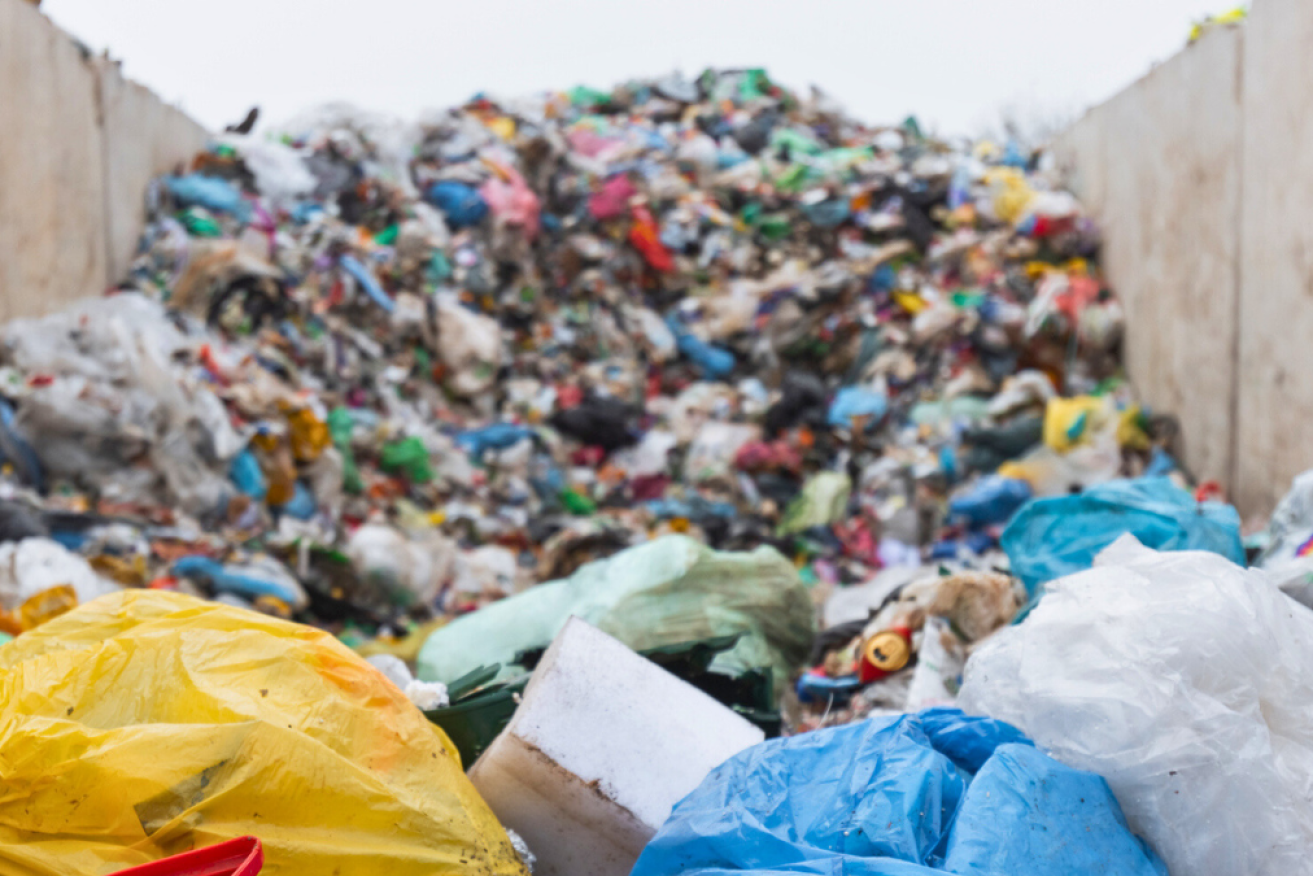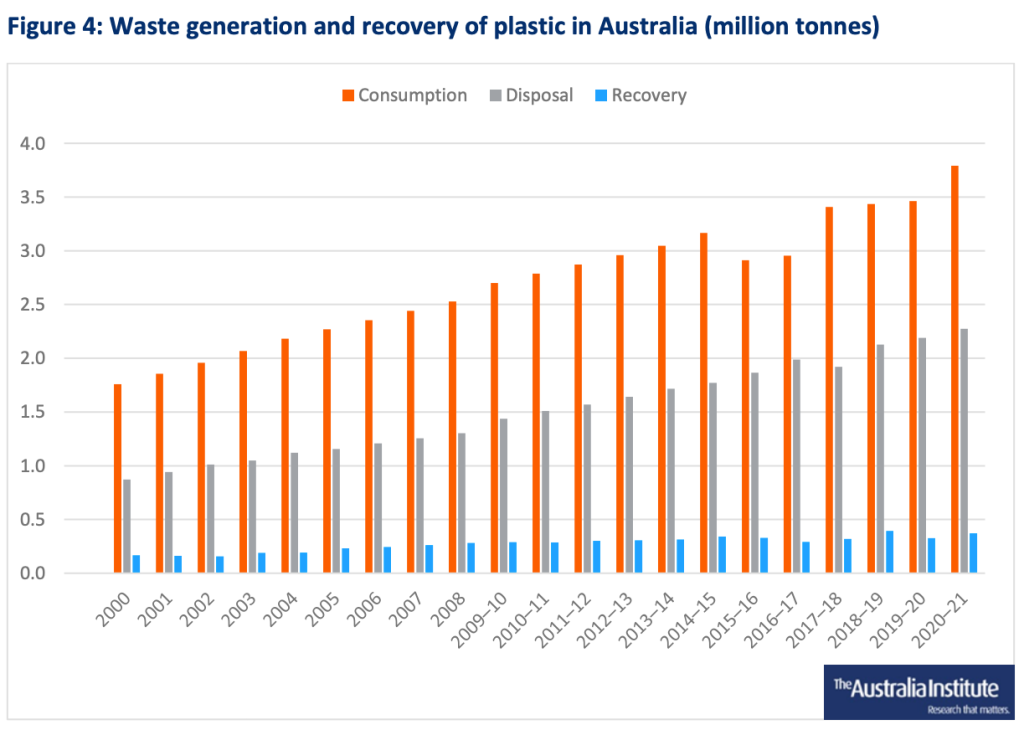Call for $1.5 billion plastic tax to curb ‘tsunami’ of waste


New research shows a plastic tax could help curb Australia's plastic waste dilemma. Photo: Getty
A $1.5-billion-a-year tax on plastic packaging is needed to help curb a “tsunami” of waste clogging up Australian waterways, according to research sounding the alarm about rising levels of rubbish nationwide.
Analysis published by progressive think tank The Australia Institute concluded a levy on businesses would raise almost $1300 per tonne of unrecycled plastic, and push companies to clean up their acts.
The organisation’s circular economy and waste program director Nina Gbor said tougher action is needed because Australia is recovering less than a fifth of the plastic waste it uses each year, while annual plastic consumption is set to double to nearly 10 billion tonnes by 2050.
“If recycling was the solution to the plastic waste crisis, it would have been solved by now,” Gbor said.
“Instead, it just encourages the production and consumption of even more waste that is choking our landfill and oceans.”
According to federal government data, Australia’s plastic consumption skyrocketed 116 per cent in the two decades to 2020-21 – which is equivalent to the weight of 72 Sydney Harbour Bridges.
And the total plastic consumed is much higher, equating to about 1000 bridges.
Making matters worse, Australia has failed to recycle most of that plastic, having sent more than half of the 56.9 million tonnes consumed since 2000 to landfill, with just 5.8 million “recovered”.

Source: Australia Institute (click to enlarge).
A key part of the solution, according to Gbor, is to follow the lead of governments in Europe and introduce a tax on plastic packaging that would make consumption more costly and encourage recycling.
The idea is that making plastic more expensive will encourage companies to use sustainable materials instead, or at least invest in types of plastic that are easier for the nation to recycle.
“Unless we drastically reduce or gradually phase out plastics altogether, in favour of compostable materials, this plastic waste problem will continue to grow,” Gbor explained.
Australia should follow European lead: Report
A plastic tax is being implemented across the European Union at a uniform rate of €800 per tonne on non-recycled plastic packaging waste, with initial estimates by KPMG predicting that about €7 billion per year in revenue will be generated once up and running.
In the UK, meanwhile, an existing tax on packaging that contains less than 30 per cent recycled plastic raised £276 million in its first year being charged at a lesser rate of just £210.82 a tonne.
The Australia Institute says Australians would support a similar tax Down Under, with polling conducted midway through last year indicating 85 per cent want legislated plastic waste reduction targets for producers, while 78 per cent support banning unrecyclable plastics.
“We know that Australians support tougher action to curb plastic waste, and that taxes and schemes requiring producers to fund the collection and recycling of plastic they produce are working overseas,” Gbor said.
“Australia’s plastic consumption is increasing, not falling. The government needed to act yesterday and should start by following the EU’s lead.”
Household action needed too
A tax isn’t the only action needed to curb plastic waste though, with the report also finding that action from households and individuals is also necessary to drastically reduce consumption.
The report keys in on two key strategies households can implement – reduction and reuse.
The first means avoiding buying more plastics than necessary and then ensuring that any plastic that is consumed can either be reused or recycled.
“By reusing as much as possible, households and individuals can help phase out single-use and disposable plastics, such as plastic cups, plastic shopping bags and takeaway plastic containers,” the report said.
“In addition to reusing existing plastics, people can help reduce waste by opting for items made from materials such as metal, cellulose, starches and bamboo.
“Reusable coffee cups, beeswax wraps, steel straws and reusable bags are all examples of how people are already making these changes.”








